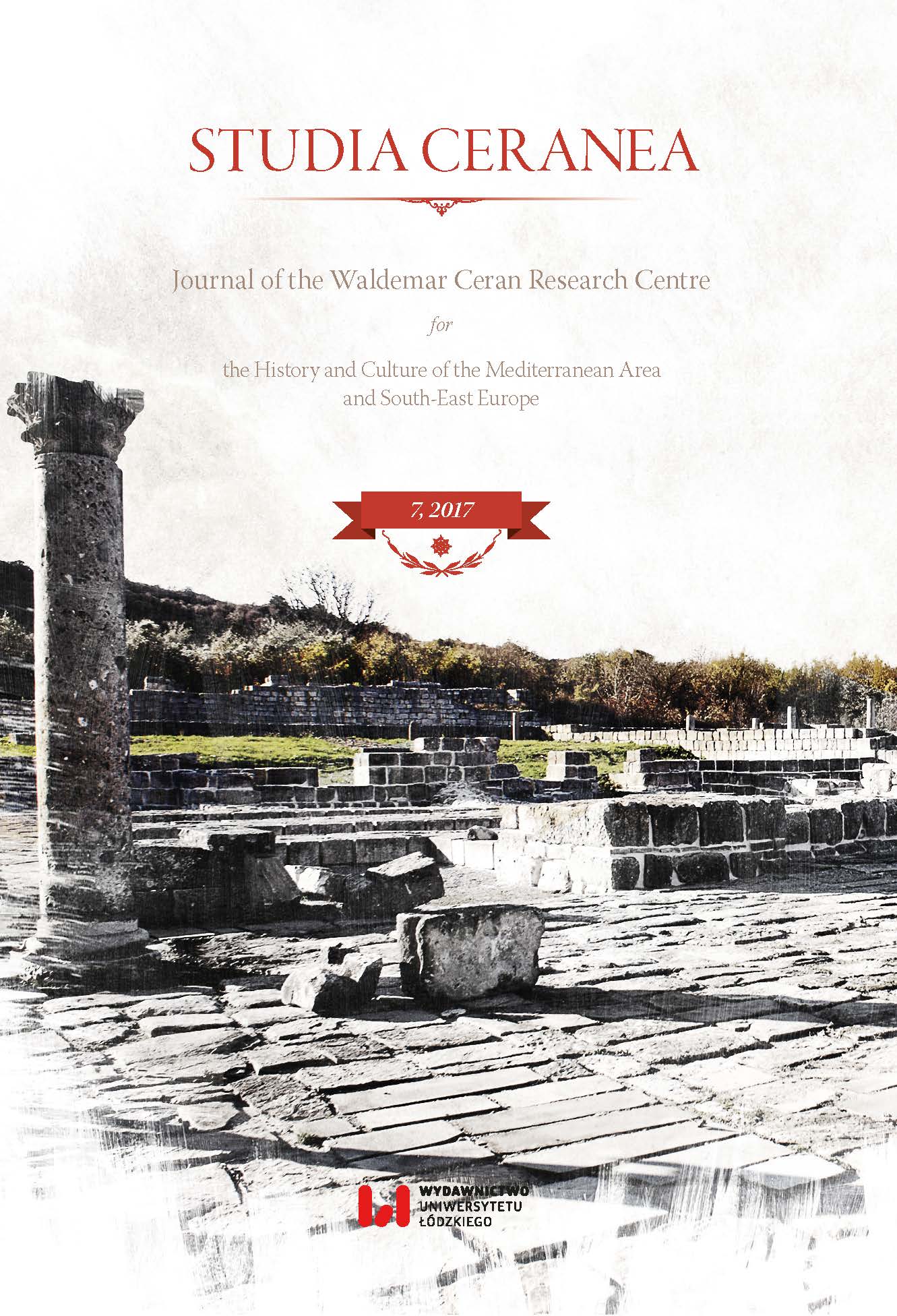A Note on the Balto-Slavic and Indo-European Background of the Proto-Slavic Adjective *svętъ ‘Holy’
DOI:
https://doi.org/10.18778/2084-140X.07.09Keywords:
saint, etymology, Proto-Slavic, Proto-Indo-European, Caland SystemAbstract
The standard etymological explanation of the Proto-Slavic adjective *svętъ ‘holy, saint’ – a word of extreme literary, cultural and religious importance in the Slavic world – concentrates on the formal match with Lithuanian šventas ‘id.’ and Avestan spəṇta‑ ‘life-giving, holy’ (PIE *ḱwen‑to‑, from the root *ḱwen‑). This article highlights the verbal formation seen in Latvian svinêtsvin svinẽjo ‘celebrate, venerate’, generally recognized as another reflex of the root *ḱwen‑ in Balto-Slavic, but without due attention to the formal implications. It is argued that both in Av. and in BSl. the adjective spəṇta‑/*svętъ behaves as an item participating in the so-called ‘Caland System’ (a set of arbitrary morphological alternations reconstructible for Proto-Indo-European).
Downloads
References
Balles I., Die altindische Cvi-Konstruktion. Form – Funktion – Ursprung, Bremen 2006.
Google Scholar
Bartholomae Ch., Altiranisches Wörterbuch, Strassburg 1904.
Google Scholar
Dell’Oro F., Leggi, leghe suffissali e sistemi “Di Caland”: storia della questione “Caland” come problema teorico della linguistica indoeuropea, Innsbruck 2015.
Google Scholar
Derksen R., Etymological Dictionary of the Baltic Inherited Lexicon, Leiden–Boston 2015.
Google Scholar
Derksen R., Etymological Dictionary of the Slavic Inherited Lexicon, Leiden–Boston 2008.
Google Scholar
Dixon R.M.W., Adjective classes in typological perspective, [in:] Adjective Classes. A Cross-linguistic Typology, ed. R.M.W. Dixon, A.Y. Aikhenvald, Oxford–New York 2004, p. 1–49.
Google Scholar
Fasmer M., Étimologičeskij slovar’ russkogo jazyka, ed. O.N. Trubačev, B.A. Larin, vol. III, ²Moskva 1987.
Google Scholar
Hock W. et al., Altlitauisches etymologisches Wörterbuch, vol. II, Hamburg 2015.
Google Scholar
Janyšková I. et al., Etymologický slovník jazyka staroslověnského, vol. XV, Prague 2010.
Google Scholar
Jasanoff J., Hittite and the Indo-European Verb, Oxford–New York 2003.
Google Scholar
Lindner Th., Indogermanische Grammatik, vol. IV, Wortbildungslehre (Derivationsmorphologie), pars 1.1, Komposition, Heidelberg 2011.
Google Scholar
Majer M., Pozostałości praindoeuropejskiego ‘Systemu Calanda’ w języku prasłowiańskim – wybrane przykłady, [in:] Symposium Etymologicum – Śladami myśli etymologicznej. W stulecie urodzin wybitnego slawisty i etymologa Profesora Franciszka Sławskiego (in press).
Google Scholar
Majer M., The Caland System in the North: Archaism and Innovation in Property-Concept / State Morphology in Balto-Slavic [PhD thesis, Harvard University, 2017].
Google Scholar
Meissner T., Das “Calandsche Gesetz” und das Griechische – nach 100 Jahren, [in:] Sprache und Kultur der Indogermanen: Akten der X. Fachtagung der Indogermanischen Gesellschaft, Innsbruck, 22.–28. September 1996, ed. W. Meid, Innsbruck 1998.
Google Scholar
Pokorny J., Indogermanisches etymologisches Wörterbuch, vol. II, Bern 1969.
Google Scholar
Rau J., Indo-European Nominal Morphology. The Decads and the Caland System, Innsbruck 2009.
Google Scholar
Rau J., Notes on state-oriented verbal roots, the Caland System, and primary verb morphology in Indo-Iranian and Indo-European, [in:] Multi Nominis Grammaticus. A Festschrift for Alan J. Nussbaum, ed. A.I. Cooper, J. Rau, M. Weiss, Ann Arbor–New York 2013, p. 255–273.
Google Scholar
Skjarvo P.O., The Spirit of Zoroastrianism, New Haven–London 2011.
Google Scholar
Smoczyński W., Słownik etymologiczny języka litewskiego, ² (manuscript), https://rromanes.org/pub/alii/Smoczyński W. Słownik etymologiczny języka litewskiego.pdf [22 VI 2017].
Google Scholar
Trautmann R., Baltisch-slavisches Wörterbuch, Göttingen 1923.
Google Scholar














